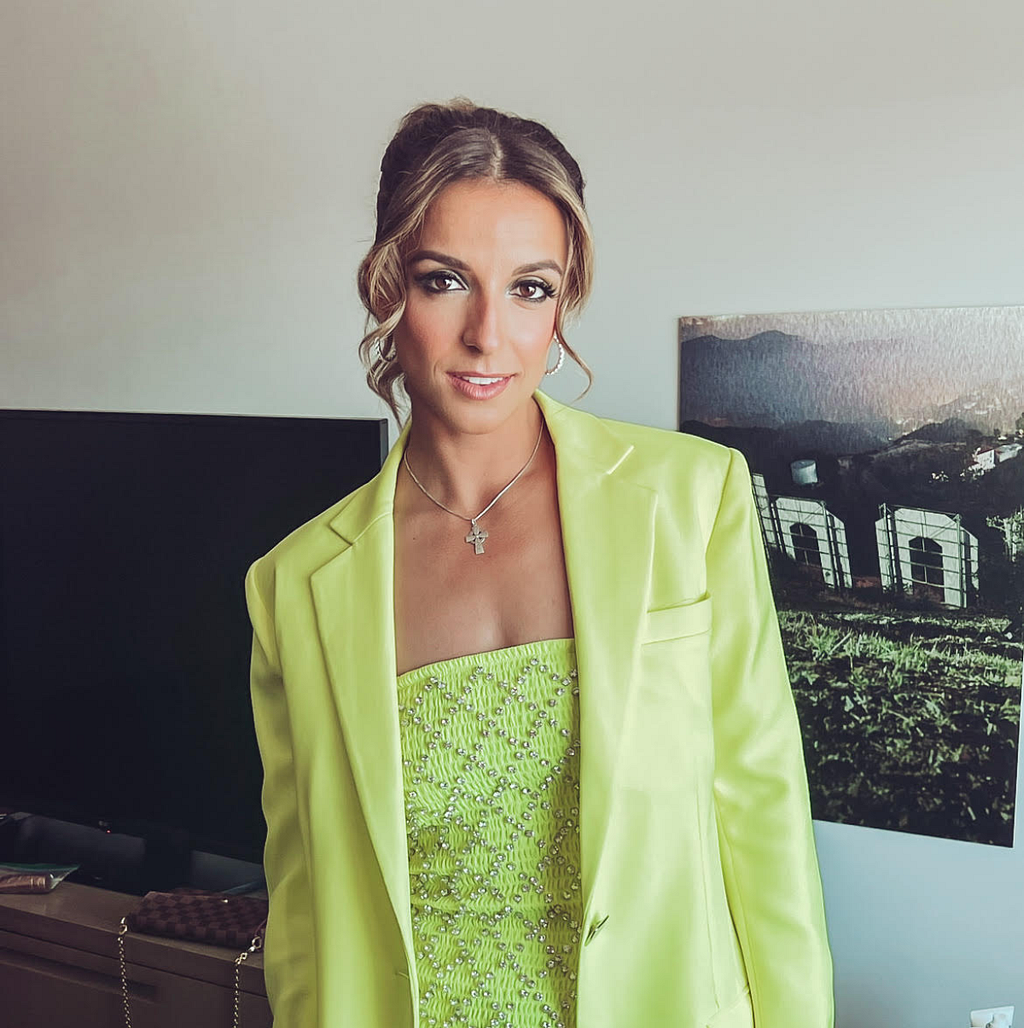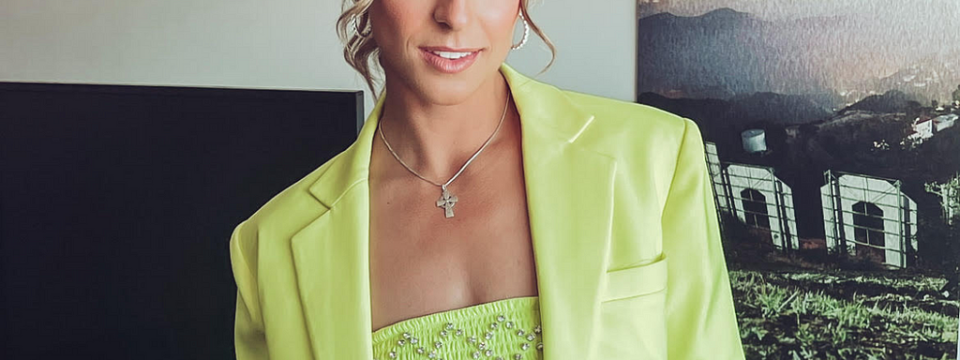Young Change Makers: Why and How Victoria Arlen of Victoria’s Victory Foundation Is Helping To Change Our World

Helping people is not easy. Sometimes the burden of how many people need our help can feel overwhelming and like the weight of the world is on our shoulders. We literally lose sleep over the tremendous need. However, we have learned to focus on the individuals who we are impacting and celebrate those victories.
As part of my series about young people who are making an important social impact”, I had the pleasure of interviewing Victoria Arlen.
Victoria Arlen has been living in a vegetative state for nearly four years, but her mind remained very much alive — and she made a commitment to herself that if she got her second chance, she would dedicate her life to helping others. Victoria founded Victoria’s Victory Foundation (VVF) to help raise awareness for access and inclusion and to provide direct resources to individuals living with mobility disabilities so that they can lead more independent and vibrant lives. Victoria is also a published author, 2012 Paralympic Gold and Silver medal swimmer, ESPN host, American Ninja Warrior JR host, and Season 25 Dancing with The Stars contestant.
Thank you so much for joining us in this interview series! Before we dig in, our readers would like to get to know you a bit. Can you tell us a bit about how you grew up?
I grew up in a small town in New Hampshire and come from a big sports family. Having three brothers and two parents who were former athletes, being active was always important. I had a picture-perfect childhood until I got sick when I turned 11 and everything changed.
Is there a particular book or organization that made a significant impact on you growing up? Can you share a story or explain why it resonated with you so much?
Northeast Passage (NEP), an adaptive sports organization out of New Hampshire, made a huge impact on me when I was 15 and navigating the world in a wheelchair. They showed me that I was capable of doing so many things when the world around me was constantly reminding me of what I could not do. NEP inspired me to be able to go out and do amazing things and inspire others to do the same.
How do you define “Making A Difference”? Can you explain what you mean or give an example?
Making a difference means changing the trajectory of someone’s day-to-day life and bringing HOPE. It means being able to make a positive impact by seeing a need that is beyond surface level — then doing something to fulfill the need.
Ok super. Let’s now jump to the main part of our interview. You are currently leading an organization that aims to make a social impact. Can you tell us a bit about what you and your organization are trying to change in our world today?
There are 42.5 million people in the U.S. that have a disability — that’s one in four adults. That is a staggering number and to be honest, I’ve seen and experienced firsthand how the world is built for the able-bodied and not for someone living with a mobility challenge. Most individuals get forgotten in the system because oftentimes insurance does not cover transportation, support services, nursing care, adaptive equipment, wheelchairs, or home adaptations. With Victoria’s Victory Foundation (VVF), we decided to step in and change that by serving and being a support system to the mobility disabled population.
Can you tell us the backstory about what inspired you to originally feel passionate about this cause?
I got very sick at 11-years-old and spent four years in a vegetative state and in and out of the hospital with severe neurological deficits and health challenges — unable to speak, walk, move or function, and not expected to live. I ended up spending 10 years in a wheelchair. Fortunately, I had good health insurance and the most incredible family supporting me. As I recovered and got back into the world and back on my feet, I needed less equipment and help. As I stopped needing these tools, I started donating them to individuals who needed help and very quickly realized how many people living with disabilities do not have the support that I had. When I found success through sports and television hosting, I realized I had this incredible platform and I wanted to use it for good. I wanted to make the most of this second chance I was given.
Many of us have ideas, dreams, and passions, but never manifest them. We don’t always get up and just do it. But you did. Was there an “Aha Moment” that made you decide that you were actually going to step up and do it? What was that final trigger?
I struggled a lot with my “why” … “why did I get a second chance, survive and recover when many others do not?” Starting VVF and realizing how I could turn my pain into a purpose and when we gave out our first round of scholarships and started hearing about how we gave people their life back… that was my AHA moment. I realized there was a reason why I lived.
Many young people don’t know the steps to take to start a new organization. But you did. What are some of the things or steps you took to get your project started?
First off was I asked these questions:
“Who do we want to help?”
“How do we want to help?”
“What impact do we want to make?”
Then my mom Jacqueline (my co-founder) and I made a plan and met our amazing Executive Director, Susan Stover. We started the paperwork, assembled our Board of Directors, and got to work. It was a process and in no way shape or form was it one press of a button and off and running. I met with Susan and the next week had to leave for three months to perform on Dancing with the Stars; it was a team effort with the huge goal in mind to change lives and help people who needed it most.
Can you share the most interesting story that happened to you since you began leading your company or organization?
Our very first event was supposed to be in October of 2017, and shortly after we launched VVF I found out I was going to be on Season 25 of Dancing with the Stars. Amongst all the craziness that is that show I had to call Susan and tell her that we had to move our first fundraising event because I was dancing on the show. It was quite the way to kick things off. We danced our way into a winter wonderland-themed fundraising gala instead — which was very successful.
Can you share a story about the funniest mistake you made when you were first starting? Can you tell us what lesson or take away you learned from that?
Honestly? Thinking that running a national non-profit would be easy and that all of it would be seamless. It’s a LOT of work but thankfully we have a team of epic humans that keep the ship running.
None of us can be successful without some help along the way. Did you have mentors or cheerleaders who helped you to succeed? Can you tell us a story about their influence?
I have been very fortunate to have quite a few mentors and cheerleaders along the way throughout my career and health journey, and also with the nonprofit world. It can be a long and arduous process when you are helping individuals and so having support is everything. Having people around you who remind you that the work you are doing truly matters is crucial. Susan and our VVF team have helped create a space that inspires not just me but our entire Board, as well as our slate of volunteers and supporters to keep going.
Without saying specific names, can you tell us a story about a particular individual who was impacted or helped by your cause?
A particular individual … How about 155 individuals across the country? Since we launched VVF in 2017 we have granted nearly $1 million in Victory scholarships to 155 individuals around the U.S. — giving them access to products and services that aid them in their day-to-day lives. Each quarter when we start a new round of scholarship applications, we have the opportunity to help even more people.
Are there three things the community/society/politicians can do to help you address the root of the problem you are trying to solve?
- We are 100% donor-supported and every single dollar counts. In fact, 94 cents of every dollar goes directly to individuals who need it most — and people NEED our help.
- Be aware of your community needs. There is a MASSIVE transportation crisis in this country for individuals with disabilities and more must be done to fix that. We take for granted being able to get out of the house and easily get to our destination.
- The more people who know what we do, the more people we can help. We need our communities and our leaders to help us spread awareness about VVF and the work we do.

Fantastic. Here is the main question of the interview. What are your “5 things I wish someone told me when I first started” and why? (Please share a story or example for each).
- If you are in the fundraising space, don’t be shy about asking for money. It is not for you personally; it is to help others and to advance your cause. Example: When I first started, I found it very intimidating or awkward to ask but then realized that people want to help. If you don’t make the ask, they may not know the need.
- You never know who you are inspiring. Wherever you are, whatever you are, don’t be afraid to be vulnerable and share your story. Example: There is a VVF recipient who would have given up on her journey, but she shared that reading my book and learning about our foundation that way inspired her to keep working hard toward her recovery.
- It’s okay to be scared and wonder what you are doing. Just feel the fear and do it anyway. Example: Truly, my mom and I really didn’t realize how much goes into running a foundation — but we keep pushing forward each day and are reminded through our recipients of the impact that we are making. It makes it all worth it.
- Helping people is not easy. Sometimes the burden of how many people need our help can feel overwhelming and like the weight of the world is on our shoulders. We literally lose sleep over the tremendous need. However, we have learned to focus on the individuals who we are impacting and celebrate those victories.
- A non-profit is like any other corporation. Running the day-to-day operations is a rollercoaster ride, so buckle up and enjoy the highs and lows! People have the misconception that we are just a happy-go-lucky group that sits around and everything comes together, when in fact we all come together and work like a company. Embrace every pivot, every victory, and every moment.
If you could tell other young people one thing about why they should consider making a positive impact on our environment or society, like you, what would you tell them?
If you see a need and feel a calling in your heart to do something, DO IT. You’ll find a way so don’t wait for someone else to do it. I think a lot of times it can be very intimidating to be young and in a very “grown up” space and trust me — I know ALL about that. But don’t let your age, resume or where you come from stop you from making a difference. We all have the ability to sprinkle good into this world and make a positive impact. You must not be afraid to take that first step.
Is there a person in the world, or in the US with whom you would like to have a private breakfast or lunch with, and why? He or she might just see this, especially if we tag them. 🙂
Oprah. She has always and continues to use her platform to inspire, to be a changemaker and to help others overcome odds by sharing her own journey. I’ve always admired her and everything she has done and continues to do.
How can our readers follow you online?
Follow Victoria’s Victory Foundation on Instagram and Facebook @victoriasvictoryfoundation and me on Instagram @Arlenv1.
This was very meaningful, thank you so much. We wish you only continued success on your great work!
Young Change Makers: Why and How Victoria Arlen of Victoria’s Victory Foundation Is Helping To… was originally published in Authority Magazine on Medium, where people are continuing the conversation by highlighting and responding to this story.
